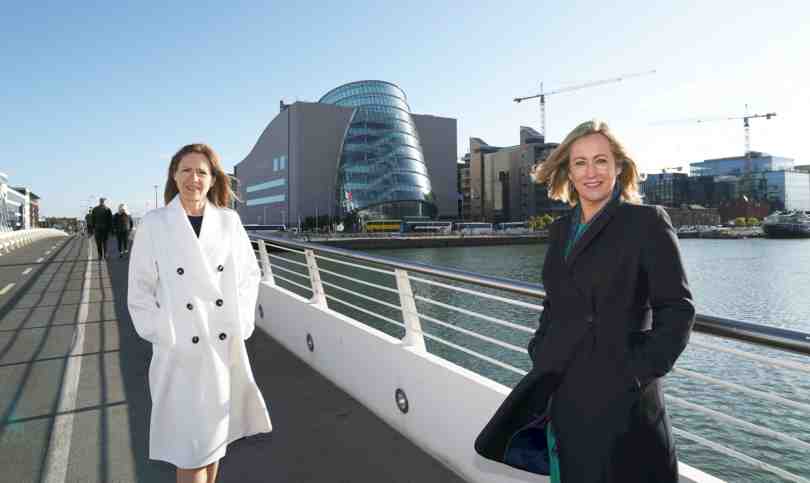The Association of Irish Professional Conference Organisers has appealed to the government for an extension of state supports to protect an industry that it says is worth €75m to the economy annually.
Like all employers, associaiton member companies have been eligible for the Employment Wage Subsidy Scheme but this is slated to terminate on June 30.
AIPCO says that the international conference sector will be one of the last to recover after the pandemic, due to an expected slow return to international travel and the long lead time for planning events.
AIPCO represents ten companies which organise international conferences in Ireland, and which between them employed 230 people before the lockdowns. It says its members organise an average of 96 conferences annually, attended by more than 32,000 delegates.
Co-chair Nicola McGrane said: “After a disastrous year we are eager to turn our attention to planning the future. The challenge is that our members have, on top of using all the available state supports, used much of their cash reserves just to keep the lights on.
“While no sector can claim to be uniquely vulnerable due to the scale of the crisis, AIPCO wants the government to realise how our sector will undoubtedly be one of the last to emerge from it. We would hope that the government will be able as soon as practicable to give an indication of when business travel can safely resume so conferences and events can be planned with a degree of confidence.”
AIPCO co-chair Marina Finn added: “Our members will work to realise opportunity from this crisis but we need support to ensure that we are ready to respond when that opportunity arises.”
Common Travel Area
Meanwhile, Irish Ferries and Stena Line are calling for the reopening of the Common Travel Area at the earliest opportunity. The CTA normally permits unrestricted travel between Britain and the island of Ireland.
Stena Line's Paul Grant said: “Covid infections are now at low levels and vaccination levels are increasing significantly in both countries. In the UK for example 66% of adults have now received their first dose and 30% have had both, so there is now a real need to focus on solving some of the economic impacts of the pandemic, and an obvious starting point are the hard-hit tourist, hospitality and travel sectors.
"With the restoring of travel between the islands of Ireland and Britain, we can start to rebuild these sectors locally in advance of the full resumption of international travel, which may take more time to agree and deliver.”
Rapid Antigen Testing
The Oireachtas Joint Committee on Transport and Communications Networks has today recommended to government that it urgently commence a pilot programme of rapid antigen testing for aviation.
Committee chairman Kieran O’Donnell stated: “Our committee agree that it is vital that Ireland takes a leading role in the EU-wide roll-out of the Digital Green Certificate/EU Covid-19 Certificate as proposed by the European Commission and implements it without delay in June. The Digital Green Certificate is a key first step to open-up safe international air travel, and the recovery of Ireland’s aviation and tourism sectors.
“Aviation is vital to Ireland’s connectivity and competitiveness, supporting over 140,000 jobs, almost 40,000 of which are direct employment by the sector. The aviation and tourism sectors must be at the fore as the country re-opens. Rapid Antigen testing has a key role to play here, and it is critical that a pilot rapid testing scheme commences without delay to ensure this can happen."
Photo: Marina Finn and Nicola McGrane. (Pic: Jason Clarke)








